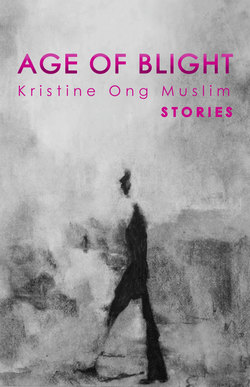Читать книгу Age of Blight - Kristine Ong Muslim - Страница 10
На сайте Литреса книга снята с продажи.
ОглавлениеThe Ghost of Laika Encounters a Satellite
I, Alpha Space Dog and only passenger of Sputnik 2, am trained to keep my head, paws, and tail inside the spacecraft at all times. I am the first animal launched into orbit and the first animal to be deliberately killed in space—or that was the plan at least.
My real name is Kudryavka, Russian for “little curly,” before they changed it to Laika. I was a stray, and I thought God-Dog had finally beamed Its mercy-paw on me when somebody took me from the streets of Moscow, scrubbed me clean, and fed me the tastiest, juiciest meat I ever had in my life.
There were three of us at first, three not-so-lonely but starving strays. They made us do a battery of buoyancy exercices, tabletop jogging, spin routines, the whole nine yards. At the end of the training period, it was none other than the chief scientist, Dr. Gazenko, who picked me to board the great rocket. He said I was in tiptop shape. I was also described as quiet, charming, not quarrelsome with the other dogs.
On November 3, 1957, they put me in the capsule. What was on my mind at the time? The juicy steak, of course. The one they always gave me each time I successfully completed a task. The technician kissed my nose. Another hugged me tightly before strapping me into my harness. That hug should have alerted me to what they had in store for me. Then they locked me inside, and maybe for the first time I felt lonely. I was shot into space.
There’s no pleasant way to state what happened next, so I’ll just say it. The core sustainer failed to automatically disengage from the payload, and I died by extreme overheating a few hours after launch.
In 1957, the Soviet PR machine put out all the stops and told people that I was euthanized when the oxygen ran out on day six. I would have loved it had they given me a time-release lethal dose of poison. That meant I could’ve expire painlessly, while they still got their readouts—temperature, radiation levels, etc. That would have been a gentler, friendlier way to die. What really happened eventually came out in 2002: excruciating death by boiling of internal organs, which was, unfortunately for me, not instantaneous.
Have you seen my collectible stamp? (I had my face on a postage stamp.) I am gazing in the direction of the person who was coaxing me to mug for the camera because I was going to get a steak later. I was looking toward the direction of men. I was looking toward the direction of hope. In one corner, Dr. Gazenko seemed pleased and happy.
I thought I got the window seat, which was exciting. But when they sealed the hatch, I could not see anything anymore. There were tiny lights before me. All the lights were strange and red and ominous during liftoff. In an hour or two, the heat became unbearable. The thermal insulation was coming off. And there I was inside a space capsule without a window, orbiting the earth, slowly cooking.
You should know that there are no speed bumps in zero gravity. Freefall is a wonderful experience, but only if you are still alive to enjoy it. Oh, speed bumps would have been most welcome.
I remember being in the backseat of a car once. There is a child beside me, and he is giggling. The child’s mother is in the front seat, the back of her head refuses to look at us, but I am happy because the child is happy. That’s as far back as I can remember before I ended up prowling the farmers markets of Moscow. Speed bumps would have been nice, would have jolted me back to where I could be sitting right beside you—you could be that child or his mother. Inside the car, I remember the woman’s voice intoning: I know, I know. All you do is watch, hide, watch, hide. See that? Is she talking about the anger of the discarded, as it is the only thing in the world that is instantly recognizable? No one can look away from it without first being challenged. And that’s my kind of anger, the one felt by the discarded, the type of anger that most people are compelled, for purposes of survival, to ignore. When you look at me long enough, you might catch a glimpse of it. Do you feel challenged? It’s true that we always grow back into our triumphant stable shapes, where we pose as if to contain something, something with a purpose, something with a will to entertain, to love, to hope.
In my memory of being in the backseat of a car with people who appear to be my keepers, the woman in the front seat and the small child giggling beside me, something must have happened. I just cannot remember what it is. But I know it is important. One of the child’s fingers is crusty with peanut butter. That stained little finger points out to something outside the car. Outside the moving car, there is so much to see. But there is no one out there to follow or to beckon with an arm that’s not yet fully formed. The child’s mother says: I told you not to touch, I told you not to touch.
She may have been talking to me or to the child with the peanut-butter-coated finger. Outside the car, I think I see you. You are body. You are highway. You are bridge. You are water. You are mountain. You are space. You, who summons and aches to refill what has been lost, open your solar-paneled eyes. Look at me.
